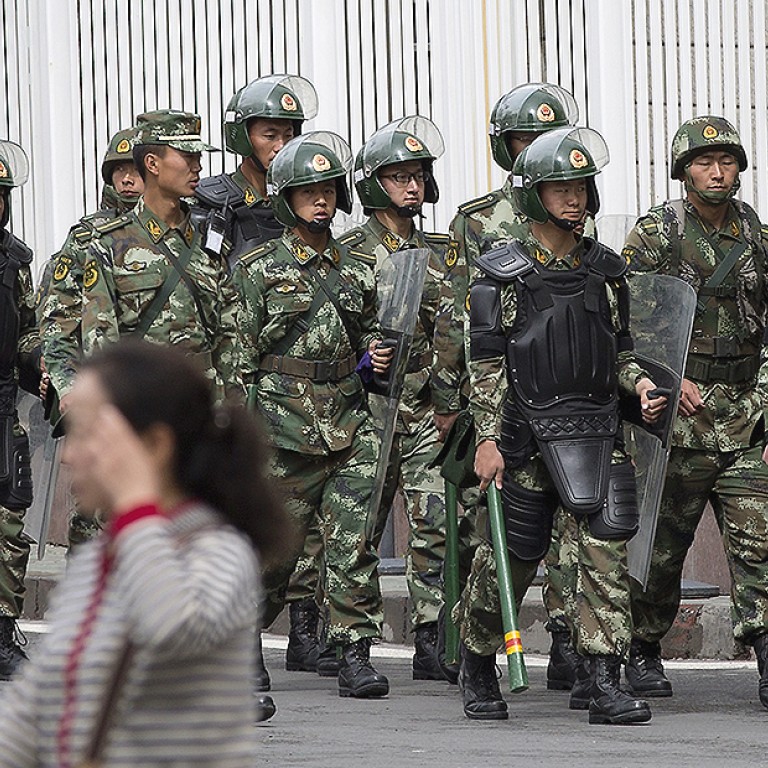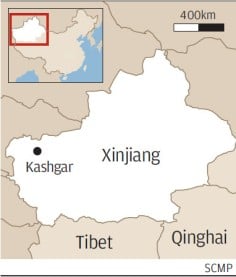
37 civilians and 59 'terrorists' died in Xinjiang attack, China says
As death toll from attack in Kashgar is put at nearly 100, authorities say that a homegrown organisation is colluding with a foreign body
Xinjiang authorities revealed that nearly 100 people were killed in last week's terrorist attack in a Kashgar county, as state media tacitly acknowledged the existence of an operational domestic terrorist organisation.

Professor Yang Shu, an expert on Central Asia at Lanzhou University, said the attack was the largest since the July 2009 riots in Urumqi, which left 197 dead and more than 1,700 injured.
According to a meeting chaired by Xinjiang's party chief Zhang Chunxian on Saturday, police shot dead 59 assailants and detained 215 suspects. Police also seized jihadist flags, knives and axes.
Altogether 37 civilians, 35 ethnic Han and two Uygur, were killed and 13 injured during the violence. More than 30 vehicles were smashed or burnt.
The scale of the violence may explain the delay in releasing the details. Monday's attack was soon followed by the assassination of a pro-Beijing imam at Kashgar city's Id Kah Mosque on Wednesday.
While saying Monday's attack was premeditated by a gang "masterminded" by someone called Nuramat Sawut in the township of Elixku, Xinhua also said "domestic and foreign terrorist organisations had colluded" to plot the attack - a deviation from its usual wording.
In the bomb attack at Urumqi's southern railway station in late April, which claimed three lives and injured 79 people, Xinhua described the assailants as "violent and terrorist gangs".
The same was true with the Urumqi market attack the following month that left 31 dead and 94 injured.
Xinhua did not make clear whether Nuramat Sawut's "gang" was part of the "domestic terrorist organisation".
Li Wei, a Beijing-based anti-terrorism expert, believed there was as yet no "mature" terrorist organisation in China. "Most cases are carried out by violent groups, not terrorist organisations in the traditional sense." But he said there might be a terrorist organisation behind the group given the scale of the violence.
Pan Zhiping, a researcher at Xinjiang Academy of Social Sciences' Central Asia Institute, said it was likely to be supported by a domestic terrorist organisation. "It's just that authorities have not found it. That's why they kept using moderate words like 'violent groups'," he said.
In June, a vice-president of China's top police academy, Li Jianhe, said China did not yet have a mature terrorist organisation, but such a day could come.
Xinhua said Nuramat Sawut colluded with the East Turkestan Islamic Movement and started recruiting in 2013. He prepared the attack during Ramadan.

